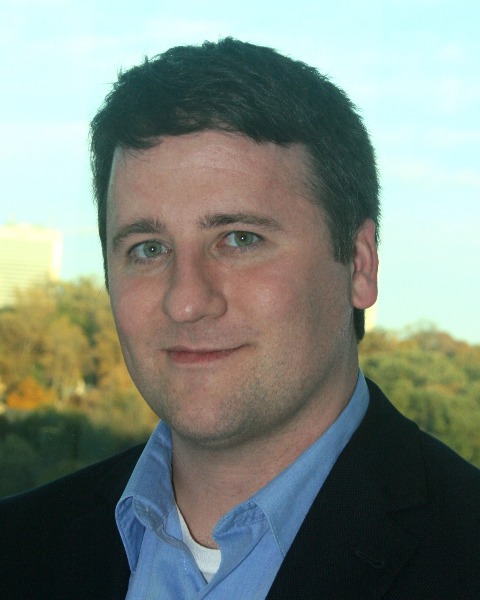Health Sciences
The Study of Muscle, Mobility and Aging (SOMMA): Mitochondrial Energetics of Skeletal Muscle
-

Paul Coen, PhD (he/him/his)
Associate Investigator
Translational Research Institute
Adventhealth
Orlando, Florida, United States -

Bret Goodpaster, PhD (he/him/his)
Scientific Director
Translational Research Institute
AdventHealth
Orlando, Florida, United States -

Giovanna Distefano, PT, PhD (she/her/hers)
Research Scientist
Translational Research Institute
AdventHealth
Orlando, Florida, United States -

Philip Kramer, PhD (he/him/his)
Instructor
Internal Medicine- Gerontology
Wake Forest University School of Medicine
Winston Salem, North Carolina, United States -
YQ
Yujia (Susanna) Qiao, PhD (she/her/hers)
Postdoc Fellow
Department of Epidemiology
California Pacific Medical Center Research Institute
San Francisco, California, United States -
.jpg)
Theresa Mau, PhD (she/her/hers)
Scientist I
California Pacific Medical Center Research Institute
San Francisco Coordinating Center
San Francisco, California, United States -

Sofhia Ramos, PhD (she/her/hers)
Postdoctoral Research Scientist
Translational Research Institute
AdventHealth
Orlando, Florida, United States
Chair(s)
Discussant(s)
Individual Symposium Abstract First Author(s)
Aging leads to a decline in mitochondrial energetics of skeletal muscle. We hypothesize that worse mitochondrial energetics is associated with greater comorbidity burden and worse fatiguability. Furthermore, sex differences in mitochondrial decline with aging are poorly understood. Prior human muscle biopsy studies have tended to be small and did not account for confounding factors including physical activity and adiposity levels. The Study of Muscle, Mobility, and Aging (SOMMA) is an observational longitudinal cohort study of 879 older adults designed to discover the biological basis of mobility disability and to collect tissues and measurements for future studies of the biology of human aging. The multidisciplinary SOMMA team includes two clinical centers (University of Pittsburgh and Wake Forest University), a biorepository (Translational Research Institute at AdventHealth), and the San Francisco Coordinating Center (California Pacific Medical Center Research Institute). At baseline, SOMMA collected biospecimens (muscle and adipose tissue, blood, urine, fecal samples); a variety of questionnaires; physical and cognitive assessments; whole-body imaging (magnetic resonance and computed tomography); accelerometry; and cardiopulmonary exercise testing. Primary outcomes include change in walking speed and change in fitness (VO2 peak). In this symposium, we will present new findings from SOMMA baseline data that link skeletal muscle mitochondrial energetics to age-associated comorbidities, including diabetes, and performance fatiguability. We also highlight the critical role that sex differences in mitochondrial energetics plays in mobility limitation. SOMMA is supported by the National Institutes of Aging (R01AG059416).
Learning Objectives:
- After attending this session, participants will be able to discuss the role of mitochondrial energetics of skeletal muscle in aging.
- After attending this session, participants will be able to describe associations between mitochondrial energetics and comorbidities, including diabetes and performance fatiguability.
- After attending this session, participants will understand gender differences in mitochondrial energetics of skeletal muscle in older adults.
Presentations:
-
10:00 AM – 11:30 AM ETCardiorespiratory Fitness and Mitochondrial Energetics in the Oldest Old: The Study of Muscle, Mobility and Aging
Individual Symposium Abstract First Author: Giovanna Distefano, PT, PhD (she/her/hers) – AdventHealth
-
10:00 AM – 11:30 AM ETGender Differences in Skeletal Muscle Energetics Explain the Mobility Impairment Disparity in SOMMA
Individual Symposium Abstract First Author: Philip Kramer, PhD (he/him/his) – Wake Forest University School of Medicine
-
10:00 AM – 11:30 AM ETSkeletal Muscle Energetics Are Associated With Performance Fatigability
Individual Symposium Abstract First Author: Yujia (Susanna) Qiao, PhD (she/her/hers) – California Pacific Medical Center Research Institute
-
10:00 AM – 11:30 AM ETDeconstructing Multimorbidity and Muscle Mitochondrial Respiration and Energetics in Older Adults
Individual Symposium Abstract First Author: Theresa Mau, PhD (she/her/hers) – San Francisco Coordinating Center
-
10:00 AM – 11:30 AM ETAssociation of Diabetes With Body Composition, Cardiorespiratory Fitness, and Mitochondrial Energetics
Individual Symposium Abstract First Author: Sofhia V. Ramos, PhD (she/her/hers) – AdventHealth
